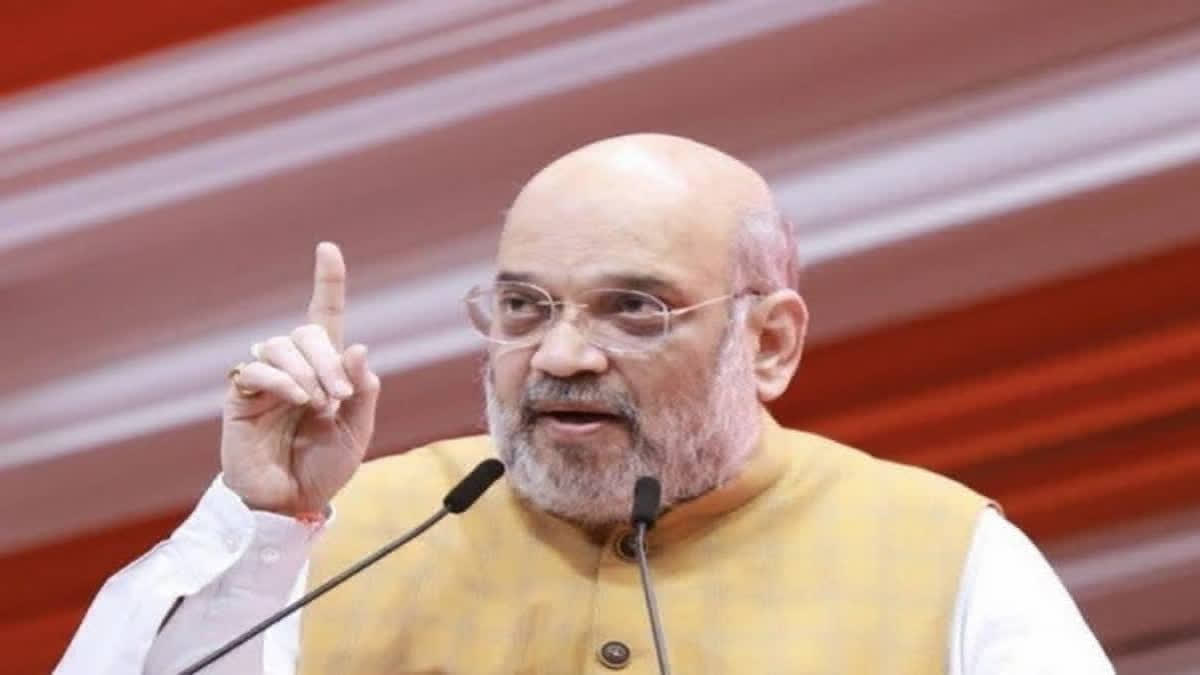New Delhi: Union Home Minister Amit Shah on Thursday released the book 'Jammu Kashmir & Ladakh Through the Ages: A Visual Narrative of Continuities and Linkages’ here on Thursday. In his address, the Shah emphasised that the National Book Trust (NBT), through its latest publication, has effectively dismantled a long-standing myth about India by presenting facts and evidence, thereby establishing historical truths.
The Union Minister said that there was a myth that India was never united and the idea of independence for this country was meaningless, a misconception that many had come to accept as truth. Shah highlighted that while most of the country's geo-politics have defined their boundaries, India’s case is unique in that this nation has been defined by its geo-cultural expanse, and whose borders are made up of cultural unity. He elaborated that India's essence lies in its geo-cultural identity, with its cultural fabric binding the nation from Kashmir to Kanyakumari and from Bengal to Gujarat, the Ministry of Home Affairs said in its statement.
Union Minister Shah argued that interpreting India solely as a geo-political entity overlooks its true nature. Instead, a deep understanding of India requires viewing it through the lens of its geo-cultural identity. He stressed the importance of historical research and academic institutions in promoting this perspective to the world, as it is crucial to understanding the elements that culturally unify the country.
Shah highlighted the similar distortions that have affected the history of Jammu, Kashmir and Ladakh. He asserted that interpreting the history of these regions by manipulating facts is both futile and misleading.
Union Minister pointed out that the book demonstrates, with evidence, that the culture, languages, scripts, spiritual philosophies, art forms, pilgrimage traditions, and trade practices found throughout India have been present in Kashmir for at least a thousand years and emphasised that once this historical truth is established, questioning Kashmir's union with India becomes irrelevant.
He added that this book proves that our rich heritage, scattered across every corner of the country, has been present in Kashmir for thousands of years. The book draws upon references to Kashmir from texts as old as 8,000 years, reaffirming its integral role in the nation’s history. The Home Minister firmly stated that Kashmir always has been and will continue to remain an inseparable part of India. He stressed that no legal provision could ever sever this bond, and while there were attempts to separate Kashmir from India in the past, time itself has nullified those efforts. He said that the Modi government is committed to reviving the historic and cultural heritage of Kashmir, and we will soon reclaim what has been lost.
Amit Shah underscored that the time has come to move beyond history written to appease past rulers. He urged historians to confidently document India’s history using evidence, facts, and the perspective of its rich, millennia-old culture, and to present it to the world with pride.
He remarked that today, India stands as an independent nation with a government committed to upholding the values and ideas rooted in its heritage. Shah highlighted that Kashmir and Ladakh have historically served as centres of civilization, fostering creation, preservation, and cultural promotion. Numerous examples of this rich legacy are detailed in the book. He noted that Kashmir has always been a land of inclusivity, embracing and nurturing diverse faiths. Whether it is Buddhism, Sufism, or Shaivism, each tradition has found the freedom to thrive on Kashmiri soil. Shah also pointed out that Kashmir is often referred to as the land of Kashyap, underscoring its historical and spiritual significance.
Shah said that Articles 370 and 35A were obstacles, preventing Kashmir from being fully integrated with our country. Shah noted that Prime Minister Modi's resolute determination led to the abrogation of Article 370 on August 5, 2019. He further said that by abolishing Article 370, Modi ji ended a tainted chapter of post-independence history and initiated a new chapter of Kashmir's development in tandem with the rest of India.



